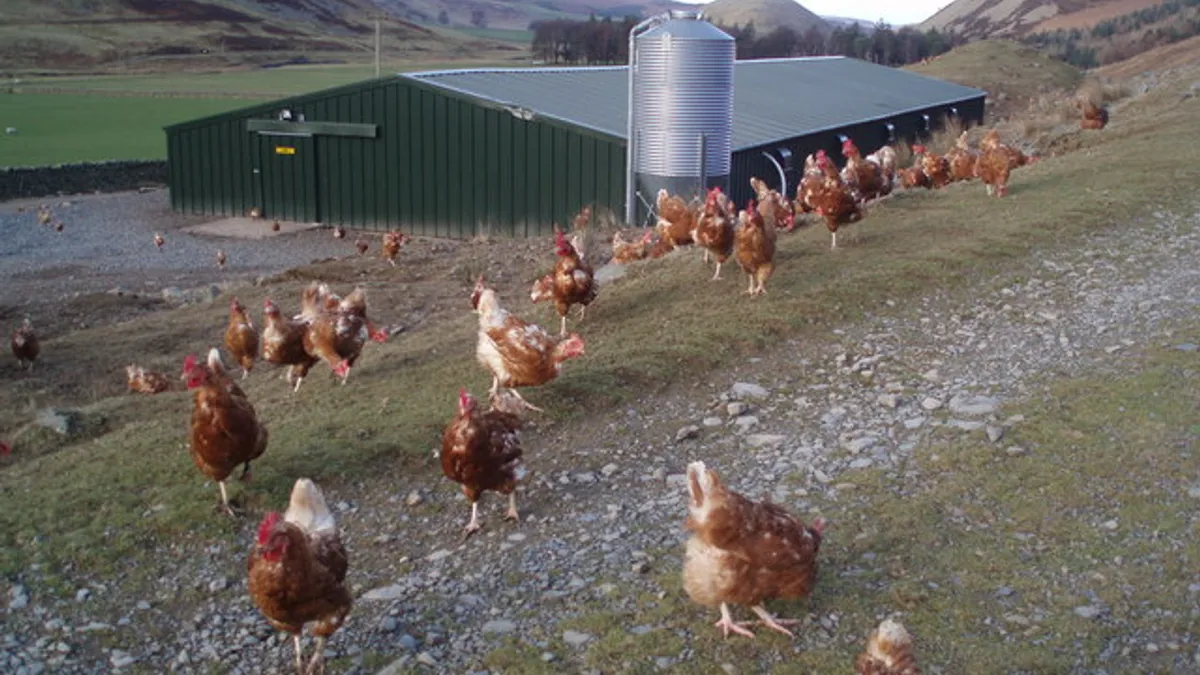Dive Brief:
- Kroger on Tuesday launched a new brand of cage-free eggs in an effort to attract consumers who want a more humane product, but were priced out of its premium Simple Truth and Simple Truth Organic brands.
- The food retailer announced in March its decision to source exclusively from cage-free hens by 2025. As of 2015, the company sourced 15% of its eggs from cage-free hens, compared to the industry average of 9%.
- Kroger, a long standing retailer, has published a report that outline how it plans to become more sustainable by 2020 through increasing conscientious sourcing in its supply chain.
Dive Insight:
Kroger's decision to go cage-free increases the pressure on its suppliers to transition to cage-free hens or find new purchasers, demonstrating the power of purchasing decisions to impact policies across the supply chain.
In this case, increased purchasing rates of cage-free eggs by customers led Kroger to increase its own purchases of cage-free eggs from suppliers, who must bear the cost of overhauling their facilities over ten years to comply with the policies. The alternative for suppliers, of course, is to switch to non-cage free purchasers — but McDonald's recent announcement of its own transition to cage-free suggests the fad may be here to stay.
However, the logistics of this transition — which are excellently detailed in a graphic by Wired — will be extremely costly for suppliers. Current egg consumption in the U.S. has leveled at roughly 260 eggs per person each year. If all egg suppliers were to comply in order to remain competitive, this would require 140 million cage-free hens to be built, according to the USDA Agricultural Marketing Service.
That said, Kroger's launch of a dedicated cage-free brand in order to lower the retail prices suggests many consumers still prefer price over policy, despite increased trends.













